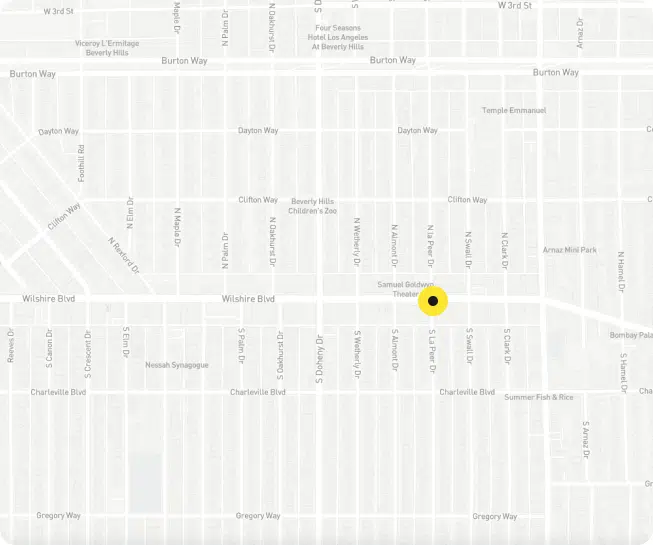CALIFORNIA LEMON LAW ADVOCATES, CALL (323) 675-3282 FOR YOUR FREE CASE EVALUATION - AVAILABLE 24/7.

If you live in San Bernardino County and are struggling with a defective vehicle, California’s Lemon Law is designed to protect you. This law allows consumers to seek a replacement vehicle or a refund when a new car or certain used vehicles have significant defects that impair safety, value, or usability.
For San Bernardino residents, the law works just as it does across California, but there are local specifics to know. Claims are typically filed in the San Bernardino County Superior Court, which handles disputes between consumers and manufacturers. Knowing the local court rules and timelines can make the process smoother.
California Lemon Law offers strong protections to consumers in this area, including:
Coverage for new and certain used vehicles - If your car was purchased or leased in California and has persistent defects under the manufacturer's warranty.
Reasonable repair attempts - Manufacturers are generally given four chances to fix the defect. If the problem continues, you may be eligible for a buyback or replacement. However, if a serious safety defect is present, a reasonable number of repair attempts may be as few as two.
Legal remedies - You can pursue refunds, replacements, and sometimes reimbursement for related costs , such as towing bills or rental cars.
Understanding how Lemon Law applies specifically in San Bernardino County ensures that residents can take full advantage of these protections while navigating local courts, repair centers, and arbitration options. Working with a local attorney familiar with the county’s procedures can help maximize your chances of a fair outcome. Choose someone with a proven track record of getting settlements under the California Lemon Law for new cars.
Our team handles lemon law claims involving nearly every type of vehicle driven in San Bernardino.
Popular car brands frequently involved in lemon law claims include Ford, Chevrolet, Toyota, Honda, Nissan, Hyundai, Kia, BMW, Mercedes-Benz, Volkswagen, and Ram.
Electric vehicle lemon law claims are also accepted, including Tesla and other EV manufacturers facing battery, software, charging, or range-related defects.
Luxury and performance vehicles are covered when repeated defects affect safety, value, or use.
Leased vehicles may qualify for lemon law protection if the defects occurred during the warranty period.
Used vehicles can be eligible when they were sold with a manufacturer-backed warranty or remaining factory coverage.
Cars, trucks, SUVs, and vans are all evaluated based on defect history, repair attempts, and warranty status.
Every case is reviewed individually and results depend on the specifics. The goal is to determine whether the vehicle meets lemon law requirements and what options may be available.

A California Lemon Law claim can be filed for a variety of vehicle types. For example, most personal vehicles are covered, including cars, trucks, SUVs, motorcycles, motorhomes, and some recreational vehicles. In some cases, the San Bernardino Lemon Law may apply to some commercial vehicles, but there are limitations. What cars qualify for Lemon Law?
There's been a Lemon Law case against almost every major manufacturer at some point. No automaker is immune to having lemon issues. We've represented clients with Ford, Chevy, Toyota, Honda, Tesla, and other vehicles.
However, experienced lemon law attorneys know that the vehicle must qualify for the requirements. In California, the guidelines include the following rules:
The defect must substantially impair the use, safety, or value of the vehicle.
A manufacturer's warranty must cover the defective part or system.
The driver must allow for a reasonable number of repair attempts.
The defect must begin within 18 months or 18,000 miles upon taking ownership of the vehicle.
If you are unsure whether the vehicle qualifies for San Bernardino Lemon Law, we advise you speak to experienced lemon law attorneys.
Consumers have learned to trust our Ontario Lemon Law attorney team because of our expertise. We understand how to apply local Lemon Law protection to individual cases.
Whether you have a Ford, a Toyota, or a Chevrolet, our firm can handle your Lemon Law case. We handle cases for cars, trucks, motorcycles, and other personal-use vehicles.
Our Ontario Lemon Law lawyers in California have many years of experience to handle your lemon case with ease.
In fact, you pay nothing out-of-pocket! We don't get paid if we don't win. That's how much faith we have in our Ontario Lemon Law lawyers.
We keep you updated at every stage, so you always know what's happening. You'll work directly with a lemon law professional, not a call center.
We are familiar with common repair patterns at Ontario dealerships. Our team understands how local service departments document repairs and communicate with manufacturers. Plus, we have experience reviewing Ontario-area repair orders and identifying missing or incomplete details.
To seek relief under the Lemon Law, certain criteria must be met regarding your vehicle. Here’s a breakdown of the necessary conditions:
Warranty Coverage - The vehicle should be under a manufacturer’s warranty when you either bought or leased it. This includes new, used, pre-owned, or certified vehicles. An extended warranty from the manufacturer also qualifies.
Persistent Issues - If your vehicle had ongoing issues that required multiple repairs before the warranty expired, it may still be eligible even after the warranty has expired.
Reasonable Repair Attempts - The manufacturer must have had a reasonable number of opportunities to fix the defect. This aspect ensures that attempts were made to address the problem satisfactorily.
Extended Repair Duration - Your vehicle should have been out of service, aka “in the shop,” for a cumulative total of thirty days or more. This illustrates the impact of ongoing issues on the vehicle’s usability.
Meeting these conditions enhances the likelihood of your vehicle qualifying for Lemon Law relief, potentially saving you from prolonged inconvenience and unexpected expenses.
According to a recent review of state court statistics, lemon law lawsuits in California rose from approximately 15,000 to more than 22,000 in 2024, revealing that California is among the nation’s most active states for automotive defect litigation. Trying to navigate all of these claims requires the right legal representation.
After helping thousands of clients navigate a Lemon Law case, our team has carved out an efficient process. A successful lemon law claim follows these steps:
Gather documentation. San Bernardino Lemon lawyers encourage clients to gather repair records, warranty paperwork, and other documentation to prove the defect.
Check that the vehicle meets the Lemon Law requirements. Lemon Law representation goes through the qualifications to ensure the case fits the requirements.
Contact the manufacturer. The Lemon Law firm reaches out to the manufacturer to see if a reasonable solution can be agreed upon.
File a San Bernardino Lemon Law claim. If negotiations don't go favorably, the lemon law process moves to the courts.
The purpose of the lawyer in Southern California is to get a replacement vehicle or a lemon law buyback. Thankfully, some cases are performed on a contingency basis, meaning you may not need to pay anything unless the claim is won.
Filing a claim with an experienced Lemon Law attorney couldn't be any easier. Here are three simple steps to remember.
Briefly fill out our quick online form or, if you prefer to skip the wait, call (855) 783-9911
Free consultation
No obligation
We evaluate your claim, contact the manufacturer, and negotiate a favorable settlement for you. + We handle all communication
We work directly with the manufacturer
No stress, no paperwork for you
We will ensure you receive the maximum compensation from your car’s manufacturer, getting everything you're entitled to.
Legal fees covered by the manufacturer
Fast, smooth resolution
There's no reason to file a claim without a Lemon Law attorney working for you. Choose a lemon law attorney with experience and a track record of success, such as The Lemon Pros. Contact us today for a free case evaluation, and learn more about your rights with no money down.
San Bernardino residents dealing with defective vehicles often face challenges unique to the county. Common issues include:
Manufacturer pushback - Local drivers frequently report that manufacturers delay repairs or deny warranty claims, forcing repeated trips to service centers in Fontana, Ontario, or Rancho Cucamonga.
Multiple repair attempts - Vehicles may require numerous visits to nearby dealerships along Interstate 10, I‑15, or Highway 60, causing lost time and added stress.
Access to arbitration - While California offers state-certified arbitration, San Bernardino residents sometimes struggle to schedule hearings due to distance from Los Angeles or Riverside arbitration offices.
Documentation & legal guidance - Gathering repair records from local dealerships such as San Bernardino Honda, Inland Valley Toyota, or Rancho Chevrolet can be cumbersome without a local attorney familiar with county procedures.
Impact on daily life - Persistent vehicle defects can disrupt commutes across the Inland Empire, including routes to major employers, schools, and local attractions like Big Bear Lake or Lake Arrowhead.
A lemon vehicle qualifies when it has repeated defects under warranty that affect use, value, or safety. In San Bernardino, lemon cars may qualify after a reasonable number of failed repair attempts. Claims are filed against car manufacturers that cannot fix the problem within the required limits.
Under California law, the deadline to file a lemon law claim is generally four years from when you first experienced problems with the vehicle under the car warranty. This timeline often starts when the owner knew or should have known the defective car was not being properly repaired. Filing within this period helps ensure you can hold manufacturers accountable before legal rights expire.
Look for experience securing maximum compensation for clients with clear repair histories and strong advocacy skills. Compare your legal options by checking reviews, case results, and how attorneys communicate about strategy and timelines. Ask how they differ from other firms in approach, fees, and success rates so you can pick someone aligned with your needs.
Yes! Most experienced San Bernardino lemon law attorneys offer a free consultation to review your situation at no cost. During the free consultation, they’ll evaluate your repair history and discuss your chances of financial compensation under California’s lemon law. They can also explain how your specific circumstances may impact your claim before you commit to hiring them.
Phone: (855) 939-4836
FAX: (800) 123-4567
E-mail: [email protected]
You may be entitled to compensation if your vehicle was subject to a recall.

© The Lemon Pros © 2026. All rights reserved.
Attorney Advertising. Prior results do not guarantee a similar outcome. This website is for informational purposes only and does not constitute legal advice. No attorney-client relationship is formed by viewing or using this website. For legal advice, please schedule a consultation.